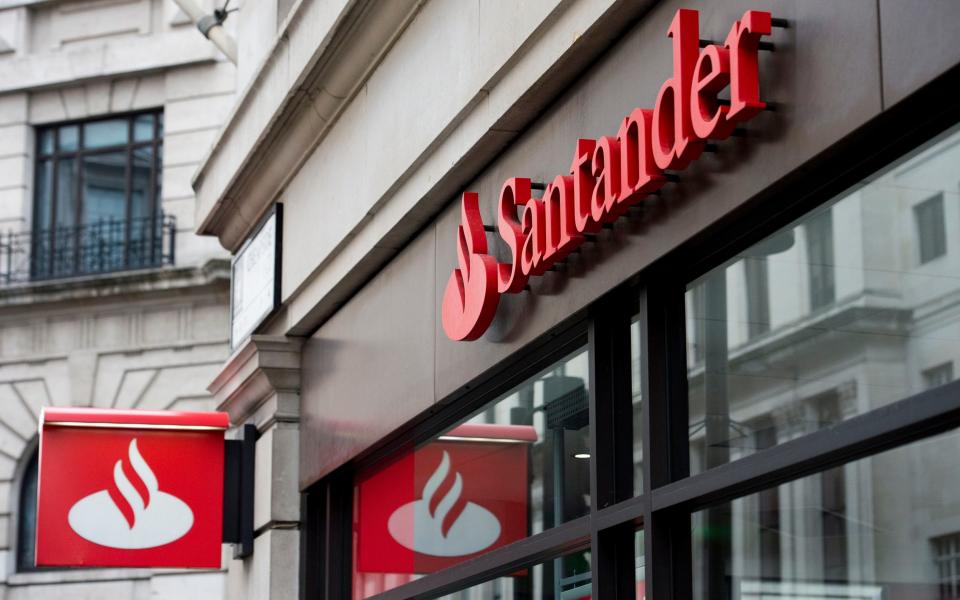Millions of homeowners face mortgage rate rises

Britain's biggest banks immediately announced increases to mortgage interest rates following today's Bank Rate rise, piling pressure on already squeezed households.
The Bank of England increased rates by 0.15 percentage points to 0.25pc in an attempt to tackle surging inflation. Millions of borrowers on standard variable and tracker-rate mortgages will see their bills rise as a result.
Barclays, Halifax, Lloyds Bank, NatWest, Nationwide and Santander all said they would pass on the full increase to customers with loans that track the Base Rate. Smaller lenders TSB, Virgin Money and Coventry Building Society also followed suit. Collectively these lenders represent around 70pc of the British mortgage market.
Experts warned the move away from low rates could also signal the beginning of the end for Britain’s “frenzied” house price boom. Rapid property price growth has been thanks in part to low interest rates for more than a decade.
About two million households have some form of variable mortgage. The 850,000 borrowers on tracker-rate mortgages will see a £186 increase in their yearly repayments, according to UK Finance, the lender body, equivalent to £15.50 a month.
For the 1.1 million customers on standard variable rate mortgages, costs will jump by an average of £9.58 a month, or £115 a year.
Santander was the first lender to announce it was putting up its mortgage rates, minutes after the Bank’s noon announcement. The bank said that all tracker mortgages linked to the Bank Rate would increase by 0.15 percentage points from February.
The bank's standard variable rate will also increase to 3.5pc. On a £200,000 outstanding mortgage, this would add roughly £72 to yearly repayments. Santander's two savings deals tied to Bank Rate will rise by 0.15 percentage points from January.
However, while banks including NatWest, Lloyds and Halifax also announced they would increase the cost of Bank Rate-linked mortgages in February, spokesmen for each of the banks declined to state whether savings rates would see a corresponding rise. Each bank said savings rates were “under review.”
Banks are not obliged to move standard variable rates in line with Bank Rate, but typically do. The three lenders’ standard variable rates are 3.59pc, which could rise to 3.74pc if the full rise is passed on.
Nationwide, Britain’s biggest building society, also said tracker mortgages would rise from February but said it was "considering what impact this announcement would mean for savers” and would announce further details in due course. Its standard variable rate could also rise to either 3.74pc or 2.25pc, depending when the loan was taken out, if the Bank Rate rise is passed on.
Anna Bowes, of Savings Champion, a savings advice website, accused banks of increasing their charges for borrowers but failing to pass on the benefit of higher rates to savers.
In August 2018, the last time the Bank increased the Bank Rate, just 32pc of existing variable-rate savings accounts saw an increase, said Ms Bowes. The average account rate increased by 0.16 percentage points compared to a 0.5 point rise in the Bank Rate.
"It is definitely an opportunity for banks to increase their margins, and savers are the ones who lose out," said Ms Bowes.
Elsewhere in the market, Virgin Money said it would increase its tracker mortgage rates from February by 0.15 percentage points, and would review its standard variable rate, currently 4.34pc.
TSB’s standard variable rate will rise to 3.74pc “early next year”, the bank said. Barclays said its standard variable rate would rise to 4.74pc and its trackers would increase in January. Coventry Building Society’s tracker rates will rise from February. Its standard variable rate of 4.49pc will rise to 4.64pc if the full Bank Rate rise is passed on.

 Yahoo Finance
Yahoo Finance 